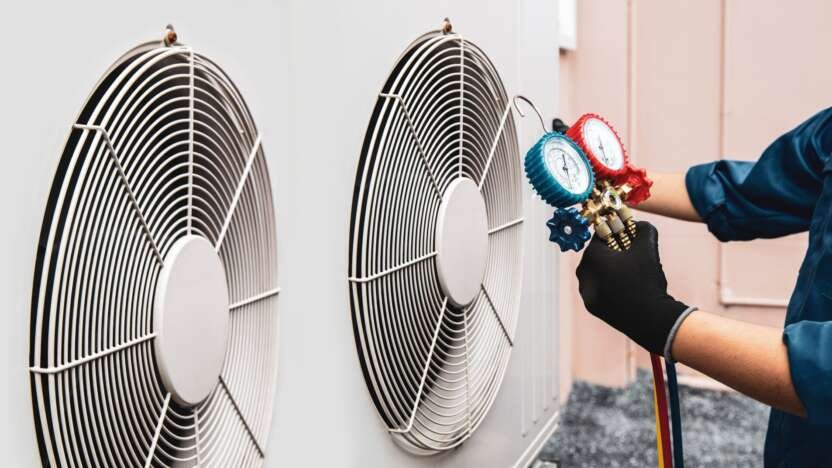If you’re at the crossroads and thinking about selling your HVAC business perhaps you’re ready to retire or shift into something new taking thoughtful, strategic steps now can make all the difference in how smoothly the process goes and what you ultimately walk away with. With the right preparation you’ll position your firm for a strong outcome when you say “I’m ready to sell my HVAC business.” At Brentwood Growth, we’ve guided many owners through this journey, helping them prepare in a way that builds trust with buyers and enhances value.
1. Define Your Exit Plan and Engage the Right Experts
Begin by clarifying your own goals: Why you want to sell my HVAC company, when you hope to exit, and what you need from the outcome. When your vision is clear, you’re less likely to be pulled off course.
Then assemble your professional team—this includes a legal advisor, accountant or CPA familiar with business exits, and a specialist HVAC business broker or M&A advisor. Research shows that business owners who engage advisors early are far more likely to succeed in achieving their desired sale terms.
Your broker will help target buyers, manage confidentiality, and optimize terms; your accountant will clean up the numbers; your lawyer will get the legal side in order.
2. Legal Readiness: Clean Compliance & Structure
Potential buyers will dig deep into the legal aspects of your enterprise. Any open litigation, licensing gaps, or environmental issues (for instance refrigerant handling in HVAC) can raise red flags. Experts warn: legal preparation is a foundation of a smooth sale.
Key steps:
- Ensure all business licensing, permits and registrations are up to date.
- Review all contracts (customer, vendor, lease, employment) to confirm transferability and no hidden liabilities.
- Address any regulatory or environmental compliance issues (especially when dealing with refrigerants, HVAC equipment, etc.).
- Formalize employment or contractor agreements (especially any key staff you rely on).
- If you’re also thinking about diversification or synergy—say you want to sell roofing company assets in addition to HVAC—make sure that business side is equally clean.
3. Financial & Accounting Clean‑Up
Buyers will expect 3 to 5 years of clean financials, trailing‑12‑months numbers, and clear documentation of recurring revenue. A strong financial presentation builds credibility and supports negotiation.
Focus areas:
- Separate owner personal expenses from business finances.
- Prepare audited or internally‑reviewed profit & loss statements, balance sheets, cash flow statements.
- Identify “add‑backs” (reasonable owner perks or adjustments) but ensure they’re defendable.
- Show stability in revenue and margin, with minimal dips or one‑time anomalies.
- Demonstrate strength in your service business: maintenance agreements, recurring contracts, after‑hours service plans. Businesses with high percentages of service/recurring revenue tend to command better multiples.
- Clean up aged accounts receivable, inventory, vehicle/tool asset lists. Show no surprises lurking for buyers.
4. Operational Excellence: Make the Business Run Without You
One of the top concerns for buyers is: “Will this business succeed if the owner steps away?” Reducing owner dependency and building systems matters.
Operational upgrades you can complete:
- Document core processes: dispatch systems, technician scheduling, service plan renewals, parts purchasing.
- Build or formalize your customer‑service and quality assurance workflows.
- Retain or promote a strong operations manager, service manager or install manager who can step in post‑sale.
- Standardize your maintenance plan offerings and show renewal statistics.
- Diversify your revenue mix: a strong service/maintenance business backed by install/replace work is more resilient. That means if you’re also considering how to grow a HVAC business, now is the time to add new services, boost membership‑style revenue, and build stability.
- Ensure your fleet, tools, and equipment are in good repair and well documented—buyers don’t want to inherit surprises.
5. Customer, Contract & Revenue Review
A robust, predictable revenue stream is gold. Buyers pay for certainty. Focus on:
- Signed maintenance contracts or comfort‑club plans with renewal terms.
- Customer concentration: if too much revenue comes from one client or a small number of clients, that’s risk and value can drop.
- Geographic or market diversification, where possible.
- Service‑plan attach rates and technician productivity metrics.
- Clean job‑costing data and profitability by job type (service vs install).
When you’re ready to sell my roofing business in addition to HVAC, the same principles apply: contracts, diversification, and recurring revenue matter there, too.
6. Marketing & Confidentiality Strategy
When the time comes to go to market, you’ll want a well‑crafted offering document (CIM – Confidential Information Memorandum) and a process that maximizes competition while preserving confidentiality. SME firms in the HVAC world often prefer to use a trusted HVAC business broker for this step.
Keep the sale confidential internally until a buyer is selected. Premature disclosure can cause employee turnover, customer defections, or supplier issues.
Your broker will help you identify the right buyer universe—strategic competitors, regional consolidators, private equity seekers—and manage negotiation of LOIs (Letters of Intent) and purchase agreements.
7. Transition Planning & Earn‑Out Structuring
Buyers will pay up for a deal that comes with a smooth transition. They’ll want assurance you’ll support them in the early phase (often 3–12 months). Documenting the transition, clarifying roles, and if needed structuring earn‑outs or performance‑based seller notes helps.
If you’re also selling a roofing company alongside the HVAC business, consider how your transition affects the combined entity and how liabilities, warranties or cross‑sell opportunities will shift.
8. Timing, Patience & Managing Expectations
It’s common for well‑prepared businesses to spend 6–12 months from preparation to closing. Rushing out can lower value.
Keep running the business during the process—growth cannot stall. Buyers watch the performance while you’re “on the market,” and declines can trigger renegotiation of terms or price reductions.
Work with your broker to set realistic valuation expectations. Over‑pricing drives away bidders; under‑pricing leaves money on the table. And remember: value is more than price—it’s about terms, risk mitigation, transition, and structure.
9. Final Legal & Closing Steps
As you near closing:
- Confirm all assets, intellectual property, fleet, tool inventories are included in the agreement.
- Agree on working‑capital peg, accounts receivable aging, and that you’ve resolved any contingent liabilities.
- Draft the Purchase Agreement, ancillary agreements (non‑compete, employment, seller note).
- Plan for communication to employees, customers and suppliers—timing matters to maintain trust and morale.
- Coordinate with your accountant for tax planning (capital gains, 1031 exchanges, earn‑out taxation).
Conclusion
Preparing to sell my HVAC business takes more than just listing your company and hoping. It’s about thoughtfully addressing legal, financial, and operational readiness well in advance, building value, reducing risk, and creating confidence for the buyer. If you’ve also contemplated a broader exit like a sell roofing business move, the same foundations apply across trades.
With the right team, a dedicated HVAC business broker, legal and accounting advisors, and by following the structured steps above, you’ll move into the market with strength rather than scramble. That’s how we help our clients at Brentwood Growth: boosting readiness, aligning goals, and maximizing the exit.





